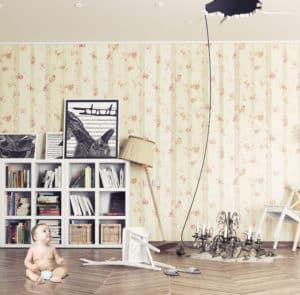Free Consultation
Free Consultation
New York City Housing Authority or NYCHA tenants of a Morrisania complex in the Bronx have been dealing with a roofing issue for the past couple of months. This problem has resulted in many other incidents. Some tenants are struggling with major leaks. A ceiling collapse even forced one family out of their apartment indefinitely. Other issues include cold temperatures in the entire building and damp mail.
Many tenants have complained to NYCHA, but they have received little aid. Over a month ago, NYCHA workers removed fallen materials from the ceiling collapse. However, they have done nothing to fix persisting problems or prevent future damages from occurring. Interestingly, NYCHA claims they are working to fix the ceiling issues, but there is no solution in sight.

Ceiling collapses are not uncommon in the Bronx. In fact, a roof incident last year caused residue from a fallen ceiling to land in a baby’s crib, injuring the 5-month old infant. Horrifically enough, this was after months of complaining from the child’s parents.
One of the main reasons for ceiling collapse is negligence either by a landlord or building management personnel. This can come in many forms:
2. Failure to inspect leaks or mold in the ceiling.
3. Rat or insect infestation problems.
4. Overall structural damage due to old infrastructure.
5. Failure to inspects cracks or chipped paint on the ceiling.
6. Violation of building codes.
7. Lack of routine inspection.
These failures, which result from a landlord’s neglect, can cause a ceiling to collapse. The main job of a landlord is to ensure that an apartment is safe and in good condition. Not doing so can result in harm or injury to a tenant.
In addition, a ceiling collapse may result in asbestos, mold, lead or mildew exposure, furthering health damage.
An important step necessary to prove a ceiling collapse premises liability case against NYCHA, or any premises owner, is proving notice. To do this, you must show that the landlord put your well-being at risk by knowing of, and failing to fix, a dangerous ceiling.
1. Actual Notice: When a verbal or written complaint is issued to the supervisor, management or landlord of the building and nothing is done. In other words, the landlord knew about the problem and failed to address it. Prior written complaints serve as ample evidence in a premises liability case.
2. Constructive Notice: When a defective or dangerous condition has existed for a long amount of time and should have been checked or fixed. Because landlords are required to perform periodic apartment checks, apparent issues should be noticed and addressed in a reasonable period of time.
3. Caused and Created: Unlike the previous types of notices, this is when the landlord causes the dangerous condition, which leads to apartment damage or injury. For example, if the landlord is fixing the heating system and causes a pipe to burst which results in a leak or ceiling collapse.
When dealing with a claim against a Municipal Defendant like the NYCHA, it is necessary to follow strict procedural guidelines.
First, you must file a Notice of Claim within 90 days of the accident. This document has some very specific requirements including: your information; attorney information; and details of the ceiling incident. You must also include any known damages or injuries.
The Municipal Defendant, NYCHA in this instance, then has an opportunity to investigate the accident before a lawsuit is filed. Additionally, and after filing the Notice of Claim, NYCHA may request a hearing to learn more about the details of the incident. Additionally, there may also be a request for a physical examination.
Legal actions against NYCHA must be filed within 1 year and 90 days of the loss.
Perhaps the best way to avoid a ceiling collapse or similar accident is to directly contact NYCHA. They have a 24/7 emergency service , as well as many other options to report problems.
However, NYCHA does not have a very good track record when it comes to fixing ceiling issues. Last year in Brooklyn, a couple endured a ceiling collapse which left them with substantial apartment damage and serious injuries. Consequently, they filed a $10 million lawsuit against NYCHA.
If you have been victim to a ceiling collapse and sustained serious injuries or damage, you should contact an experienced lawyer immediately. For answers regarding your potential case and rightfully deserved compensation, you can contact our attorneys by email or by calling (718) 364-4000 for a free consultation. You may also fill out one of our case intake forms, and one of our attorneys will get back to you as soon as possible.